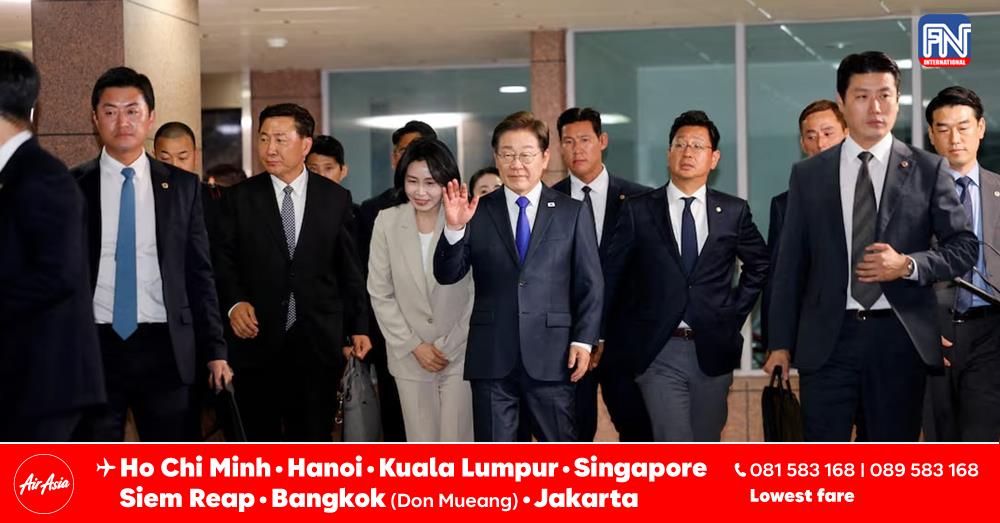SEOUL, Jun. 4 (Reuters) - South Korea's new liberal President Lee Jae-myung began his term on Wednesday, vowing to raise the country from the turmoil of a martial law crisis and revive an economy reeling from slowing growth and the threat of global protectionism.
Lee's decisive victory in Tuesday's snap election stands to usher in a sea change in Asia's fourth-largest economy, after backlash against a botched attempt at military rule brought down Yoon Suk Yeol just three years into his troubled presidency.
He faces what could be the most daunting set of challenges for a South Korean leader in nearly three decades, ranging from healing a country deeply scarred by the martial law attempt to tackling unpredictable protectionist moves by the United States, a major trading partner and a security ally.
With 100% of the ballots counted, Lee won 49.42% of the nearly 35 million votes cast while conservative rival Kim Moon-soo took 41.15% in the polls that brought the highest turnout for a presidential election since 1997, according to National Election Commission data.
The 61-year-old former human rights lawyer called Tuesday's election "judgment day" against Yoon's martial law and his People Power Party's failure to stop the ill-fated move.
"The first mission is to decisively overcome insurrection and to ensure there will never be another military coup with guns and swords turned against the people," Lee said in a victory speech outside parliament.
"We can overcome this temporary difficulty with the combined strength of our people, who have great capabilities," he said.
Lee was officially confirmed as president by the National Election Commission on Wednesday and immediately assumed the powers of the presidency and commander in chief.
An abbreviated inauguration is planned at parliament at 11 a.m. (0200 GMT), an Interior Ministry official said.
Lee has said he would address urgent economic challenges facing the country on the first day in office with a focus on the cost-of-living concerns affecting middle and low-income families and the struggles of small business owners.
He also faces a deadline set by the White House on negotiating import duties that Washington has blamed for a large trade imbalance between the countries.

Photo from Reuters